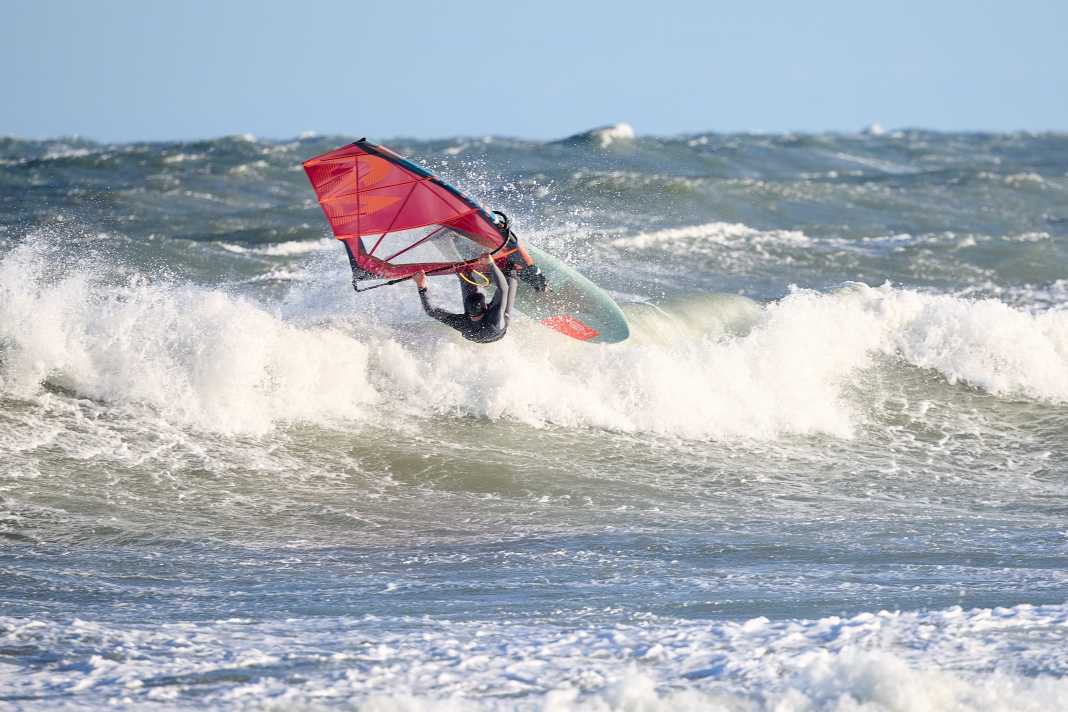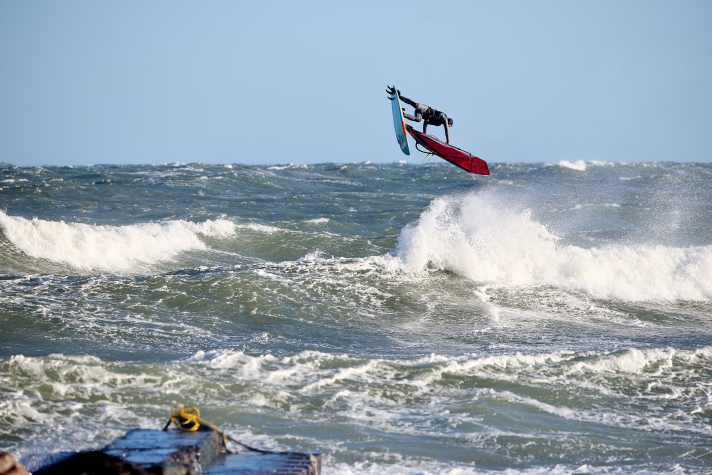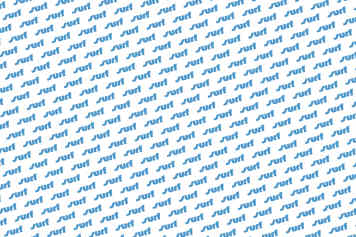Waveboards 2025: Smooth turns, light weight - test of the Severne Nano Pro 92
Surf Testteam
· 14.12.2024






On land
In addition to the Köster Pyro model, manufacturer Severne has the Nano in its programme, which is also available in the Pro design tested here, which is even lighter than the standard version (surf measurement: 5.82 kilos!), but also around 300 euros more expensive. The board is designed purely as a quad and is even slightly shorter than the Pyro. The wide swallow tail reveals distinctive channels on the underside and an above-average amount of flex ("tail rocker"). A clear "V" runs through the underwater hull from back to front. The equipment offers light and shade: The straps are comfortable and soft; they are also fixed in place with the Allen key, which also acts as a batten tensioner. Unfortunately, the foot straps on the Nano Pro are only ever simply screwed on and the rear pad is also very short, meaning that large feet can sometimes land on the edge of the pad.
On the water
In direct comparison with its sister model, the Pyro, the Nano Pro immediately reveals noticeably more turning potential, especially in tight turns over the rear foot. It is probably also due to the strong V in the underwater hull that the Nano is easier to rail-to-rail. Tight radii over the back foot are easy with the board, even though it has a few litres more on its ribs than the Pyro 87, which we also tested. On the other hand, the board also requires more skill in the bottom turn, as the carving characteristics in rough conditions are very passable, but not at Pyro level.

And there's another discipline where the Nano Pro can't keep up with its stablemate: Planing! Although the board gets up to speed passably well, there is a noticeable lack of acceleration and speed, especially in the lower wind range. In our opinion, the tail shape is primarily responsible for this, as the distinctive channels generate noticeable resistance when planing, and a glance downwards confirms this with visible bubbling at the tail. This is also the reason why the board runs out of breath a little faster when riding unpressurised waves or with little sail draft. Nevertheless, it can make sense to opt for the Nano Pro, for example if you are mainly travelling with enough wind or, even better, in powerful ocean waves. Then the downsides fade into the background and the board can make even the most demanding wave riders happy with its smooth turning characteristics and tight radii.
Severne Nano Pro - the conclusion
The Nano Pro is the right choice if you are surfing at a higher level and regularly surf powerful waves or at least well-powered waves. This is when the shape can fully utilise its strengths - smooth and variable turning - even if you choose a model one size larger. For jumping conditions or typical Euro wave days with sideonshore wind and current, however, the sister model Pyro clearly offers more potential.
Light-footed edging, smooth turns, weight
Acceleration in light wind; rear footpad short
Screw connection loops
Severne Nano Pro - technical data
- Test model: Severne Nano Pro 92
- Volume: 92 litres
- Length: 219.5 cm
- Width: 59 cm
- Weight (surf measurement): 5.82 kilos
- Finns: 15.5/11 (Slotbox)
- Price: 2849 Euro
- Available sizes: 72/77/82/87/92/102 litres
- Contact: Severne website
- Special features: -
